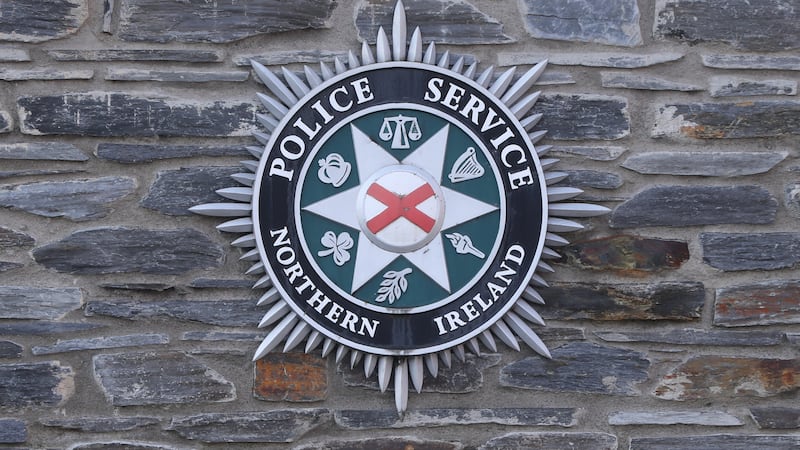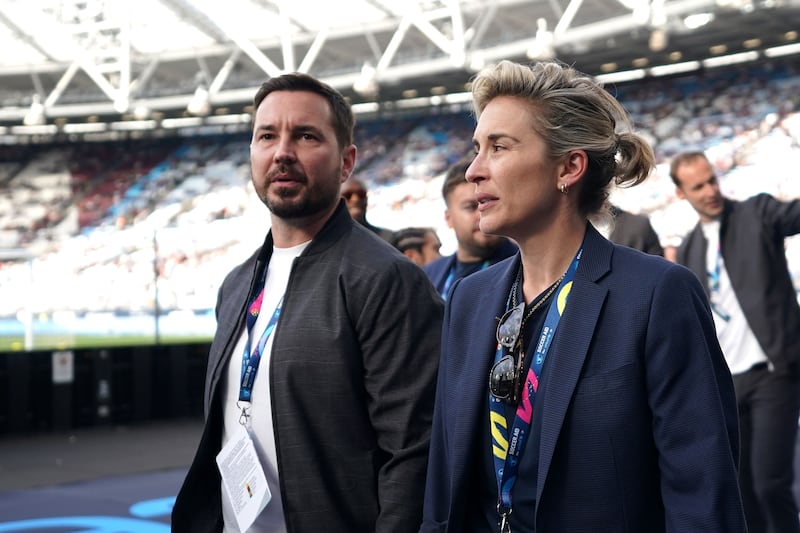IS a TV show even a TV show if it's title isn't trending as a hashtag on Twitter - or is that the point it has been overtaken by it's own hype and the death spiral has begun?
There were certainly fears that the reach of sleeper BBC hit drama Line of Duty might have exceeded its grasp during the chaotic muddle of series five in 2019.
It had launched to little fanfare on BBC Two in 2017 - then the go-to channel for those who fancied themselves as discerning TV watchers. Indeed there remain a smug coterie of fans who can't mention the show without the addendum "of course I was watching it when it was on BBC Two".
That first series `starred' Lennie James as Detective Chief Inspector Tony Gates, head of a serious crime unit that proved to be rotten to its core.
His was the punchy storyline involving police collusion with underworld gangsters, blackmail, extortion and an alarming number of murders and torture - here was British TV, arguably for the first time, pulling off a show with the pace and complexity of golden age US dramas like The Sopranos and The Wire.
The lower key storyline in that first series was the one which would prove to be the spine of the show - the meticulous, painstaking work of AC-12, led by Fermanagh's own Adrian Dunbar.
The gateway into what was until then the largely unmined world of police internal affairs was Martin Compston's Steve Arnott character's reluctant journey from an isolated stand against his own unit's corruption to AC-12 stalwart and a partnership for the ages with Vicky McClure's Kate Fleming.
It was the way they steadily gathered evidence before constructing an insurmountable case against the corrupt officer in their sights that elevated the drama above others.
In a TV landscape packed with high-octane detective shows, that attention to detail and writer-producer Jed Mercurio's refusal to dumb down complicated police procedure unexpectedly captured the hearts of viewer.
Remembering that CHIS stands for Covert Human Intelligence Source, OCGs are Organised Crime Groups and Reg 15 is notification to an officer that a complaint has been made against them became a badge of honour among fans - Come for the self-amputation and body in the freezer, stay for the acronym soup.
Series after series Mercurio wove together fiendishly complex storylines packed with twists, dramatic reveals and shifting loyalities with breathtaking virtuosity, gathering millions of viewers as he went.
By the time the show transferred to BBC One for Thandiwe Newton's barnstorming turn as ruthless Detective Chief Inspector Roseanne "Roz" Huntley in series four, an average of nine million were tuning in every week, with 10.4 million watching the finale.
Meanwhile, the three leads had become stars, with Dunbar's Norn Ironisms reaching iconic status across the UK, while back in his homeland everyone with even a passing acquaintance with Belfast was straining to work out where different scenes were set - production having decamped there for shooting from series two.
However, Mercurio's attempts to progress the criminal conspiracy which had been the nominal link between the series mirrored by Hastings increasing obsession with the mysterious `H', has threatened to thrown the ratings juggernaut off-course.
Series five suffered from an uncharacteristically narrow focus on what had previously been a delicately wrought sub-plot and the fraying of main characters' principles loosened the show from what had been its anchor.
Suddenly there were suggestions that Line of Duty might not be the best cop show on TV, with ITV's Unforgotten among those being offered in its place - Had the shark been jumped? Would it flounder on rocks of its own making and begin a slow slide into lacklustre oblivion?
Mercurio reacted angrily to such criticism, but the back to basics tone of series six suggests he has taken some of it on board.
He has not been afraid to shake-up the formula - with Fleming no longer part of the AC-12 team, Hastings on the brink of retirement and Arnott's drug dependency about to be exposed - but the clunky `H could be anyone' hysteria has receded.
In its place is a return to the complex character studies where heroes and anti-heroes are again two sides of the same coin, intricate plotting and thrilling cliff-hangers.
If any of the AC-12 gang survive this series, Line of Duty has shown there is plenty of diesel left in its tank.
::
LINE OF DUTY BEST MOMENTS
:: The murder of Jackie Laverty (Gina McKee) and framing of an unconscious Tony Gates (James) signals Jed Mercurio is not here to play (S1)
:: The visceral scene where Arnott is tortured by an OCG is the first sign no character is safe (S1) - underlined in (S2) when `main cast member' Jessica Raine is thrown to her death in the opening episode.
:: `Dot' Cotton (Craig Parkinson) joins AC-12 - despite viewers knowing he is himself a corrupt officer and part of the criminal conspiracy at the heart of the show (S2)
:: Huntley (Newton) comes `back to life' as she is about to be dismembered by a police colleague who she then kills - later in the series amputating her own gangrenous hand (S3)
:: Hastings is suspended and charged with conspiracy to commit murder by his nemesis DCS Patricia Carmichael (Anna Maxwell Martin) with heavy suggestions he may be the pivotal `H' (S5)







